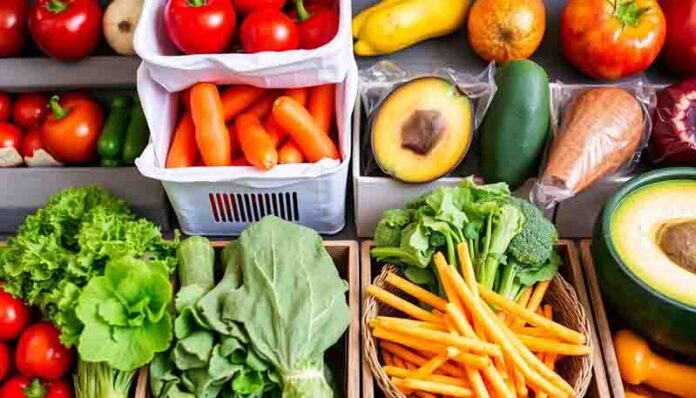From the Archives
‘Euromonitor’s report is substantiated in Nigeria, by what obtains in the nation’s foods market space, what with fruits such as turmeric, ginger, garlic, water melon, pineapple, apple, strawberry, oranges, lime and lemon, to mention just a few, which are now luxuries in the market place in question.’
SIAKA MOMOH
Coronavirus (COVID-19) has put health and food safety front and centre, increasing demand for greater transparency in food sourcing and transportation, according to a recent Euromonitor International’s report.
This has reinforced a back-to-basics approach, accelerating trends around food provenance and traditional and well-known ingredients that deliver on nutrition and functionality, the report says.
It argues that going back to basics also brings fundamental principles to the table,” such as accessibility and affordable nutrition in the context of universal wellness”. This now becomes key in light of COVID-19 as disposable incomes fall, it adds.
Local sourcing comes to the fore
According to the report, a renewed interest in locally-sourced products has been expedited. It states: “In the last couple of years, the use of local ingredients, food grown on local farms and country of origin claims have been in demand, mainly from older generations. The pandemic has accelerated the interest in locally-sourced food, in connection with transparency, high quality and food safety, as well as a means of supporting the local economy.
“A wide range of initiatives have arisen following the pandemic in order to support local food production. The Dutch initiative ‘Support your locals’ is one of them. The aim is to help local food producers and encourage short and hyperlocal supply chains, which ultimately supports the local economy and community. This initiative serves as a platform for businesses such as Maaltojdboxen Groningen, a service that delivers organic fruit, meat and vegetables grown by local farmers from the Groningen province to the consumer’s doorstep.”
Natural and traditional wisdom
It adds: “Health has taken precedence for consumers, and traditional ingredients that are nutritious (eg ancient grains like amaranth and buckwheat) and naturally functional (eg turmeric or ginger) are seeing an increased interest. Demand for targeted functionality as a key component of wellbeing has been expedited and the shift from treatment to prevention is increasingly evident, which brings the concept of ‘food as medicine’ higher up the agenda than ever.”
Nigerian angle
Euromonitor’s report is substantiated in Nigeria, by what obtains in the nation’s foods market space, what with fruits such as turmeric, ginger, garlic, water melon, pineapple, apple, strawberry, oranges, lime and lemon, to mention just a few, which are now luxuries in the market place in question.
Prices have doubled, tripled in some cases. This is so because consumers are now very knowledgeable about the health benefits of these items brought about by COVID-19 scourge. And foods processing companies are churning out new products with these foods as raw materials. By extension, there is more business and earnings for farmers at the farmgate.
Consumers are increasingly seeking traditional ways of preventing an illness in which the diet plays a key role. According to Euromonitor International’s Health and Nutrition Survey, in 2020, 48% of global consumers seek natural and traditional solutions for preventing illness versus 30% that take over-the-counter medicine.
The report notes that packaged food manufacturers have leveraged ‘natural’ claims to target such positioning in the last few years and those that incorporate well-known and traditional ingredients that deliver on various functionalities will benefit from the increased demand for natural and traditional solutions in connection with preventative health.
Spotlight on value reassessment and inclusive nutrition
Euromonitor argues: “Economic recession across many countries in 2020 puts accessibility and affordable nutrition in the spotlight. Food is a universal human right, sitting at the base of consumer needs. Ensuring that healthy food is affordable will be crucial to achieve good nutrition amongst all segments of the population.
Demand for private label and affordable wellness brands was already on the rise pre-pandemic and it has been boosted further during the global lockdowns. This demand is expected to continue as disposable incomes fall.
“A good example of added-value innovation at inclusive price points comes from the company Junlebao, which accounts for a 5.5% share of the milk formula category in China. Junlebao has launched value-for-money offerings in areas traditionally targeted at high-end consumers, such as organic and formulas for babies with special conditions.”



